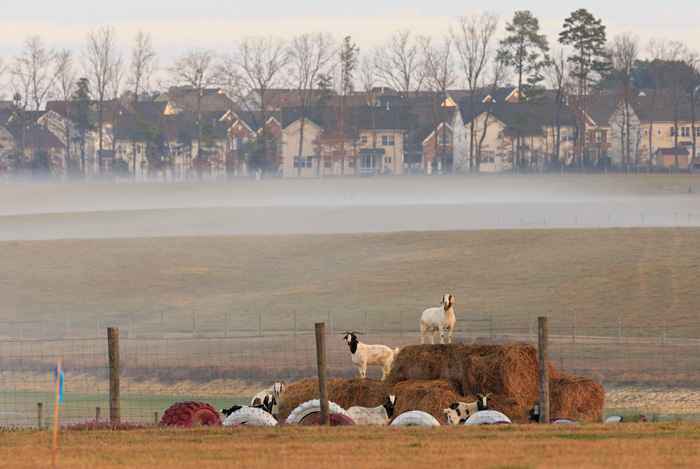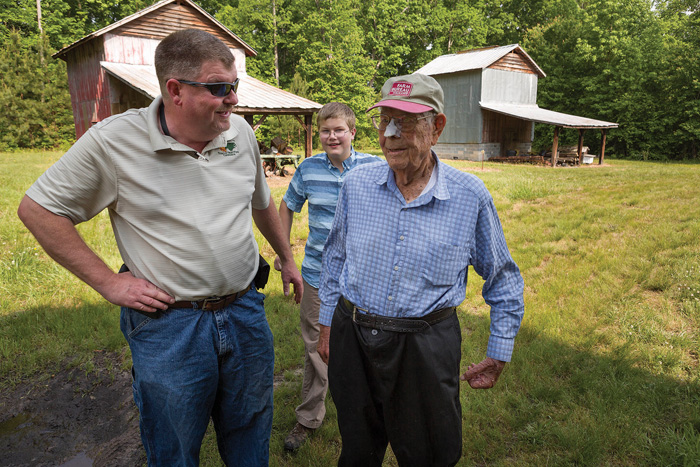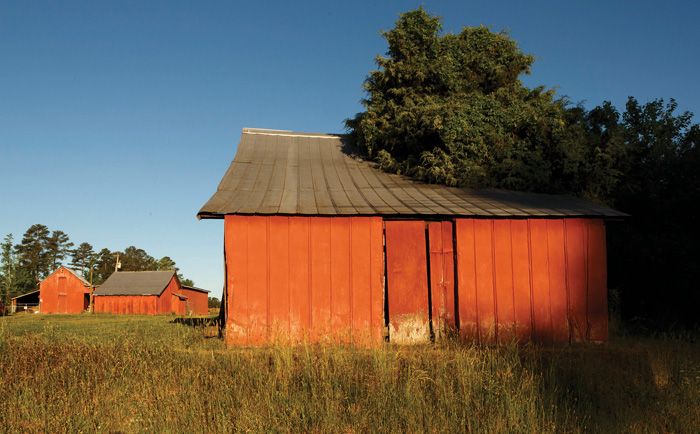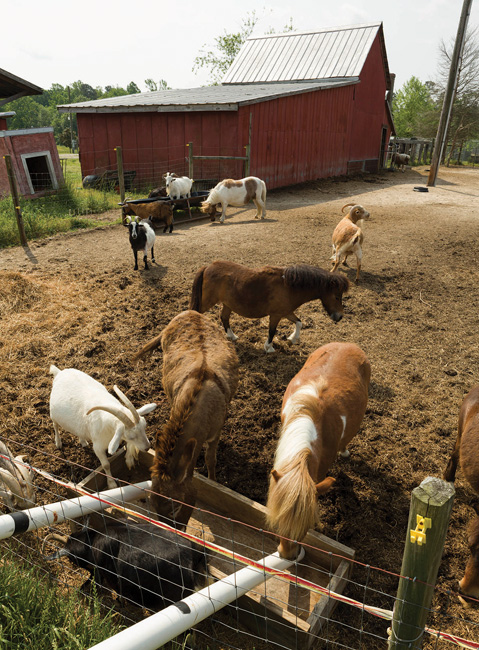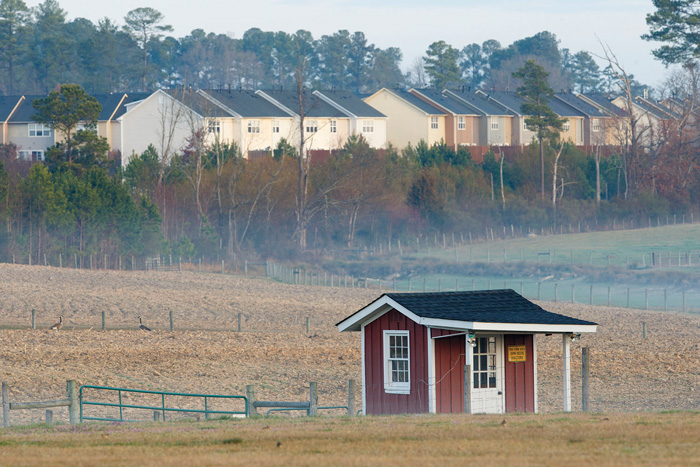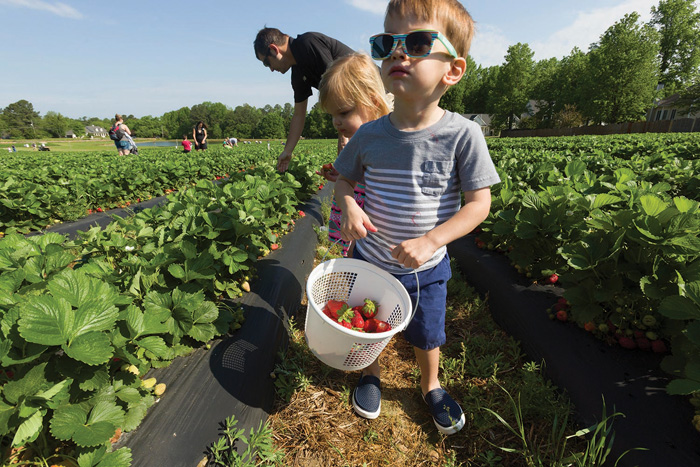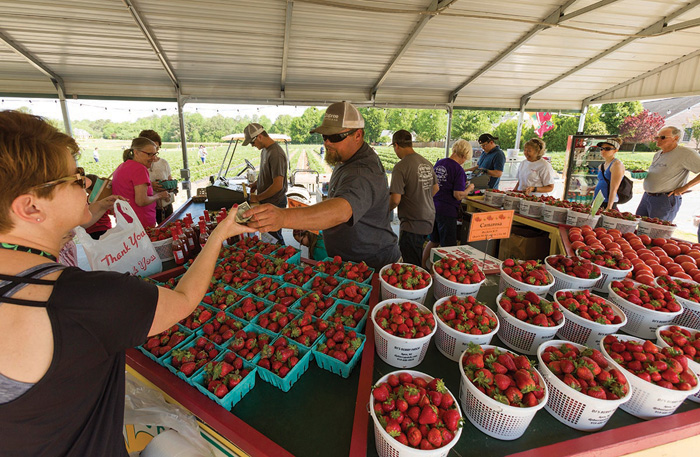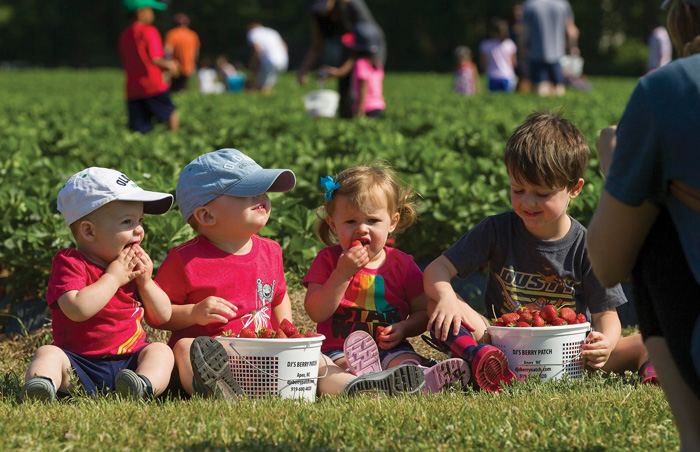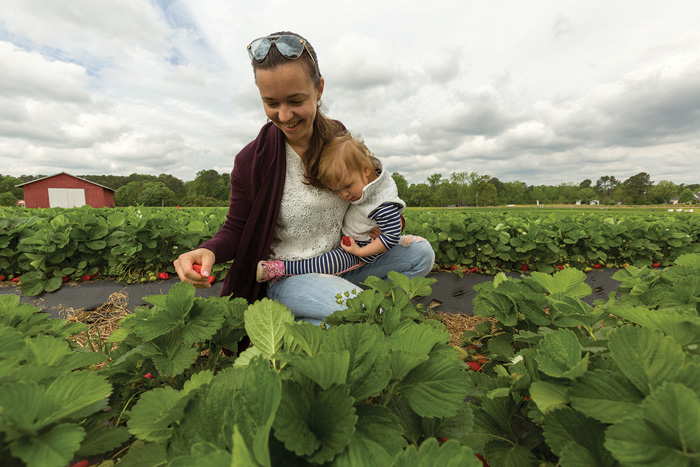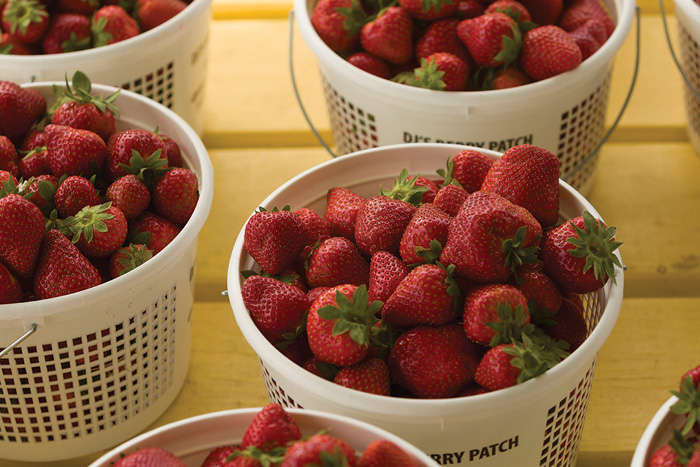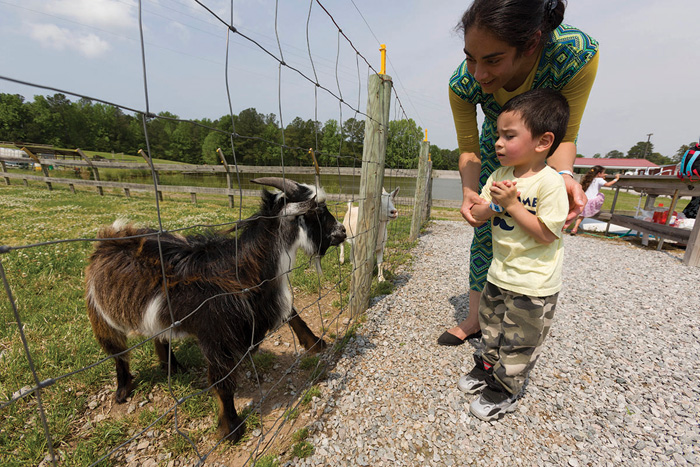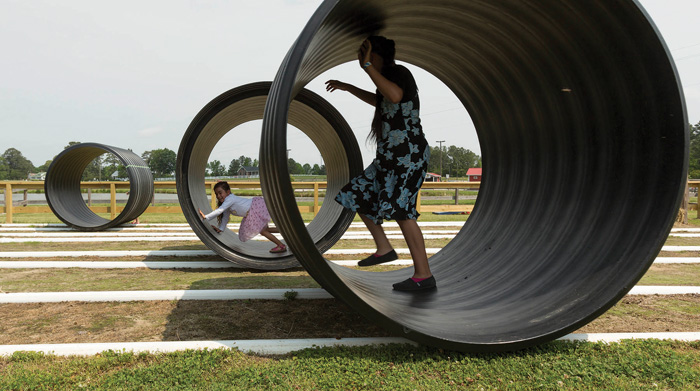In Western Wake County, farmland is disappearing quickly. Only a few agricultural islands remain, their owners hanging on through a combination of innovation and nostalgic stubbornness.
“It wouldn’t seem right if this land was being used for another purpose,” said William Upchurch, whose family has farmed in the area since the Civil War. “When you’re raised up on a farm, aggravating as it is to mow grass and work the land on hot days, every blade of grass has a meaning. Because there’s a memory here.”
Tobacco used to be king on the area’s small farms. But when the market shifted in the late 1990s, many scrambled to find a crop that would be as profitable as the golden leaf.
Agritourism — corn mazes, pumpkin patches, and you-pick strawberries — has enabled families with deep roots in the community to continue to make a living from the land. But it’s not a panacea. Between the hard work and fickle weather of farming, it’s tempting to sell the land to developers offering upwards of $100,000 per acre.
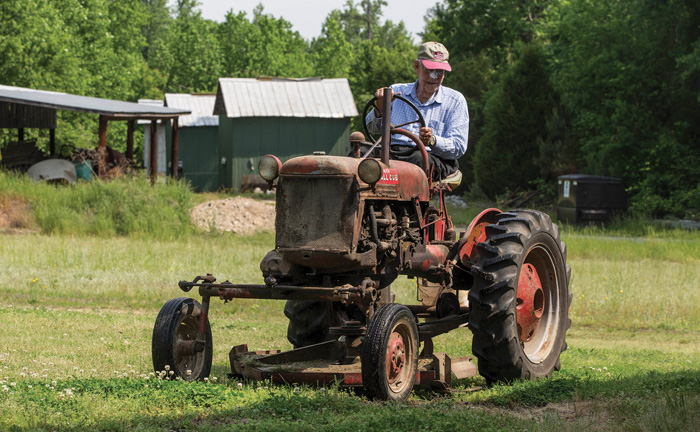
Billy Upchurch mows his grass with a McCormick Farmall Cub, still running fine after more than 60 years. “We never throw anything away. Every resource, every piece of farm equipment can be repaired and used again,” says his son, William Upchurch.
Upchurch Farm
Carpenter Upchurch Road, Cary
Billy Upchurch, 91, and his wife, Doris Jean, live in an antiques-filled home that Billy’s father built in 1934. Even after a lifetime on the farm, he is matter-of-fact about its future.
“You try to do something that gives you economic return,” he said. “We all lost tobacco, the tobacco program. That’s why we switched to agritourism, strawberries, and things like that.
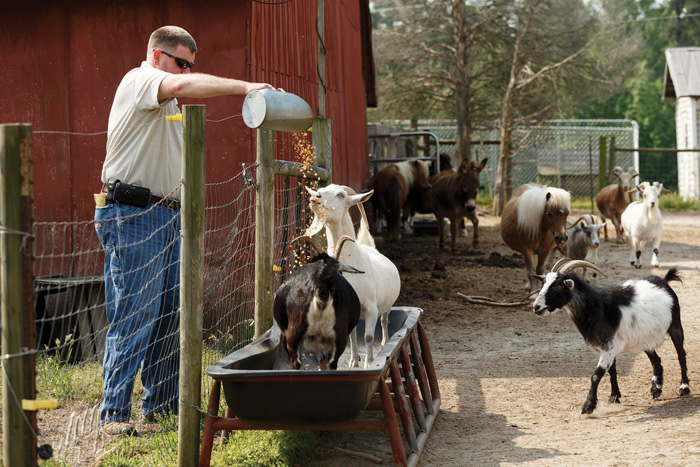
William Upchurch says he has the best of both worlds. He can make a quick run to the grocery store, and he can wake up in the morning and not see another person as he feeds his pet goats and miniature horses.
“This whole area is going to be developed someday. It’s just change.”
Upchurch’s son William hopes to forestall that change as long as he can. He partners with another farmer, Milton Ganyard, to grow pumpkins and manage an agritourism business at the farm. The family also leases much of its 165-acre property to other farmers, and grows a few crops like cotton, sorghum and hay.
William also works full time as executive director of the North Carolina Tobacco Trust Fund Commission, which assists farmers and businesses impacted by the downturn of the tobacco market. He enjoys spending his spare time with the kids who come out to the farm.
“I think people enjoy it too,” he said. “They enjoy still having open space and something going on out there that’s not typical of the congested urban areas. I feel that we give something back to the community in our own little way.”
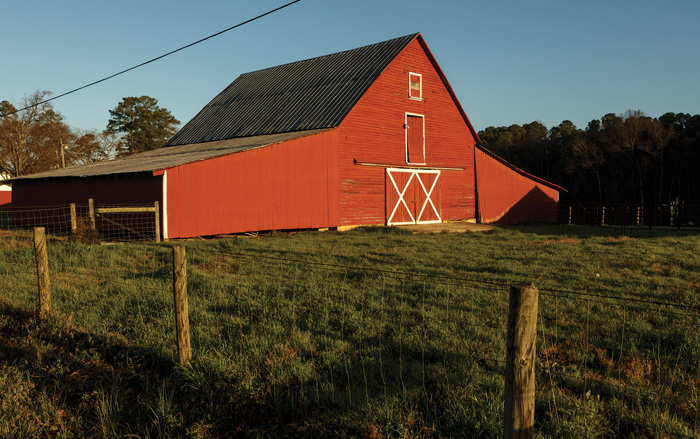
“As long as I’m living, I’ll be doing some type of farming. It’s kind of in your blood, but it’s not a mainstay like it used to be.” David Ferrell, Green Acres Farm
Green Acres Farm
Morrisville Carpenter Road, Cary
For years the picturesque Green Acres Farm has been a popular fall destination, to pick pumpkins, navigate a corn maze, or hop on a hayride.
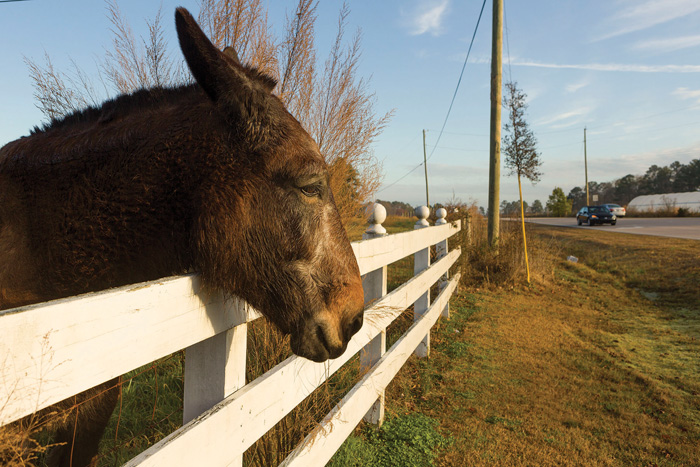
“My daddy died in ’96, and he grew up farming with horses and mules,” says David Ferrell, whose family has farmed in Western Wake for generations. “In his later years, that was his hobby. He loved mules, because he’d worked with them all his life. Daddy always said he made his living looking at the south end of a northbound mule.” Bell the mule watches cars go past on Louis Stephens Road.
“For that piece of land, the agritourism is the mainstay,” said David Ferrell of the farm his great-grandparents established in 1898. “Our clientele is on all four sides of us. We probably draw people from a 60- to 80-mile radius.”
The farm’s prime location has also attracted developers. Included in Cary’s Carpenter Village planned development district since the mid-1990s, the 80-acre property is less than five minutes from busy Davis Drive. It’s also adjacent to Cary’s Legacy at Carpenter Village subdivision to the west, and Morrisville’s Wexford subdivision to the north.
Saying it’s a good time to sell, Ferrell plans to relocate Green Acres Farm in 2018 to a larger location in Chatham County. Though there won’t be a corn maze at the Morrisville Carpenter location this fall, pumpkins and Christmas trees will still be sold there.
“I know there’s a time coming that we won’t be here,” said Ferrell. “You’ve got to face the facts that it’s a business decision, just like everything is.”
But he won’t be leaving the area completely. Ferrell says he will hold onto a 17-acre lot across Louis Stephens Road, where he keeps a donkey named Jenny and a mule named Bell.
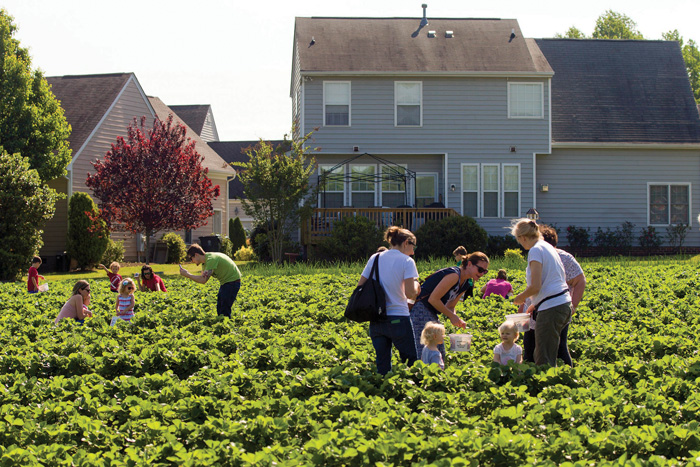
“It’s an advantage to have the farm around the houses,” says Darin Jones of DJ’s Berry Patch. “But if it keeps going the way it’s going, there’s not going to be any farmland left anywhere.”
DJ’s Berry Patch
Salem Church Road, Apex
Darin Jones’ family has farmed in Wake County for more than 100 years, but he and his wife, Jessica, have run DJ’s only since spring 2010. They lease the berry patch’s six acres in Apex from Don Sorrell, who at one time tended 50 acres of tobacco, raised chickens and worked full-time as a mail carrier.
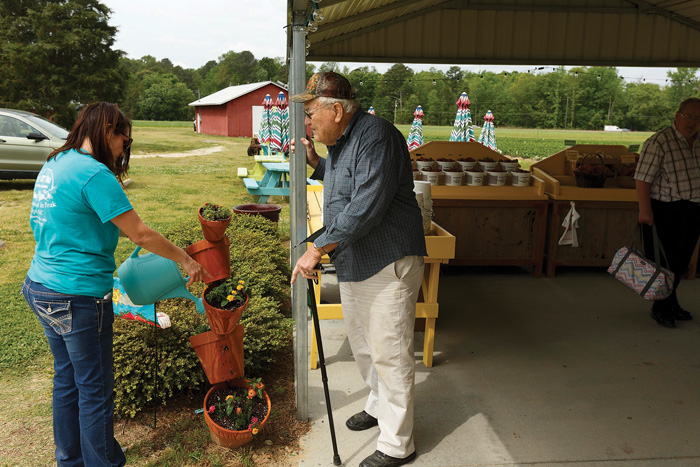
Landowner Don Sorrell talks with Jessica Jones, who runs DJ’s with her husband Darin. “We both enjoy it, and it is rewarding to plant something and then harvest it — to be able to share it with others,” she says.
Sorrell is 81 now, and unable to farm the 23-acre property he bought in 1966, so the Jones’ berry operation keeps the land designated as agricultural, maintaining Sorrell’s tax breaks. If the land were taxed at the higher residential rate, he’d likely have to move.
“They’re mighty sweet people, and I’m fortunate to have them,” Sorrell said. “I’d have to sell it, if it weren’t for them being here. The regular taxes are so high, I couldn’t pay it; ain’t no way I could pay it.”
The berry patch also brings thousands of visitors every spring, so many that the Joneses expect to plant another strawberry field this fall.
“When we first started, we knew the pick-your-own was popular, but we didn’t realize that there was just going to be such a demand for it,” said Jessica. “Each year it gets more popular.”
Darin admits that it’s good for business to be so close to housing developments. But while his customers are close, the suburban creep is worrisome too.
“If you don’t own it, you’ve got to find something you can rent that doesn’t have houses, and the money’s a whole lot better for growing houses than it is growing vegetables,” he said.
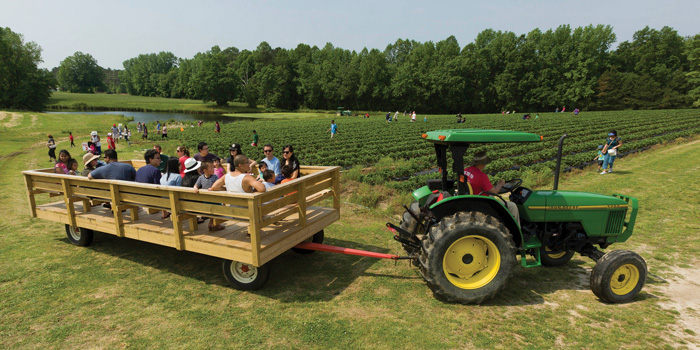
The Phillips Farms family fun park is open on weekends during strawberry season, and when the corn maze opens in September. Children and adults can enjoy pygmy goats, a giant tube race, wagon rides, a rope spiderweb, and pedal cars.
Phillips Farms
Good Hope Church Road, Cary
You might call Michael Phillips a farmer, but really he’s in the entertainment business.
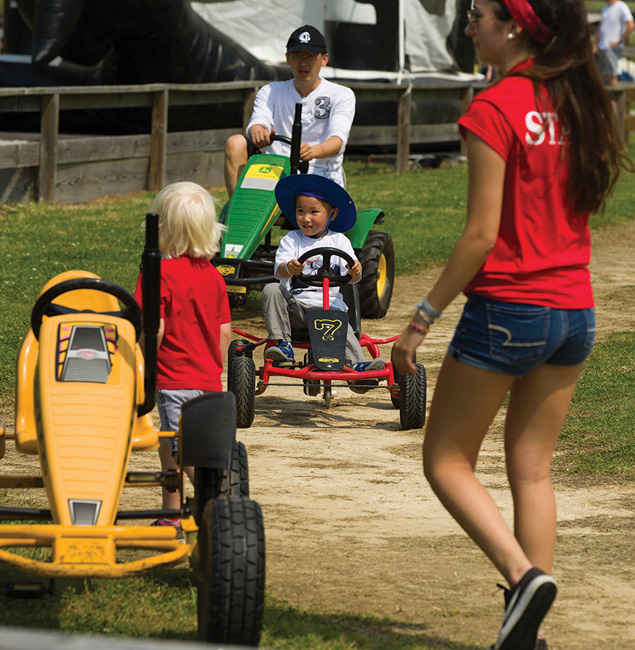
Phillips Farms
His father, Lee, bought their farm property in 1976 and grew mostly tobacco until 1998. Now agritourism is its major source of income. The younger Phillips manages that side of the business, taking care of the thousands of visitors who come out each spring for strawberries, and each fall for pumpkins and the corn maze.
“I really like to see the kids be able to get out and run,” Phillips said. “We have an advantage being where we are. You don’t have to go far, and kids can come out here and get worn out.”
Fun at the Phillips farm is a year-round enterprise, with lots of ag-related family activities including a large play area, a bounce pillow, tractor pedal cars, a hay ride, and baby goats.
The farm is close to urban areas, but has the feel of being out in the country. Standing in his driveway, Phillips says the only houses he sees are those owned by his family. And unlike some other area farmers, he doesn’t foresee that changing anytime soon.
“It’s fun to see things grow, and see your business grow,” said Phillips. “Working on your own time, that’s why I love it, not being cooped up in an office each day.”




